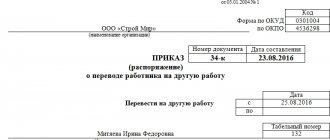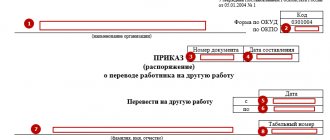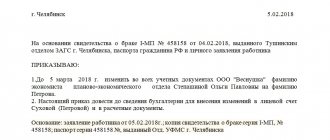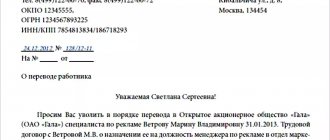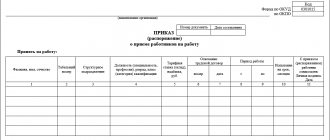Transfer to remote work is formalized by order of the organization. The transfer can be executed at the initiative of the employee or at the initiative of the employer. The employer has the right to transfer to remote work on the basis of federal or regional legislation. If the initiative comes from an employee, he must write a statement.
In addition to the order, you need to draw up an additional agreement to the employment contract.
There are no standardized forms for transferring employees to remote work. All documents are drawn up in free form in compliance with the rules of business document flow.
Who should be included in the order to transfer to remote work from 10.25.2021
All employers, including individual entrepreneurs, are required to send employees home to work. The rule applies to both full-time employees and people working under civil law contracts (GPC).
You need to transfer remotely:
- 30% of employees, excluding those vaccinated and those who have recovered from COVID;
- workers over 60 years of age, with the exception of those vaccinated and those who have recovered from coronavirus;
- employees with chronic illnesses.
The list of chronic diseases is determined by the Moscow Department of Health. You can find it here.
It is allowed to leave on site employees who cannot be avoided at the workplace - if there is a risk:
- failure or stoppage of the production process;
- threats to the life and health of the population.
At the same time, the number of simultaneously working in the field should not exceed the threshold of 70%.
This operating mode will be extended until February 25, 2022.
In what cases can an employee write an application for remote work?
The transition to a remote work schedule occurs both at the initiative of the employer and at the request of the subordinate. For staff, this option looks reasonable in different situations:
- if you have young children or other relatives who require care during the day;
- when receiving additional education simultaneously with work;
- for health;
- for creative work that does not depend on being in the office, etc.
If certain circumstances exist, an employee has the right to write a statement addressed to the head of the company:
| to CEO LLC "Clubtk.ru" Voronov A.V. from designer Klubtekaev K.K. Statement In connection with the self-isolation regime announced in the city of St. Petersburg, I ask you to transfer me to remote work from 11/11/2021 to 02/01/2022. 11/09/2021 Klubtekaev Klubtekaev K.K. |
An employee does not have the right to demand that the manager satisfy his request. The conclusion of contracts and additional agreements occurs on a voluntary basis by each party. If the employer refuses, he is not required to provide reasons. If he agrees, he enters into an additional agreement and an administrative act.
An example of such an order for remote work on the initiative of an individual subordinate:
Is employee consent required for remote work?
No, it is not necessary, since the employer in this situation is complying with the authorities’ requirements during a period of sanitary measures and restrictions, that is, an exceptional case. To transfer to remote work, a sole decision of the head of the organization is sufficient (Article 312.9 of the Labor Code of the Russian Federation).
If you have any unresolved questions, you can find answers to them in ConsultantPlus.
Full and free access to the system for 2 days.
How to transfer employees to remote work
Due to the growth of a new wave of coronavirus, regional authorities, following Moscow and St. Petersburg, are demanding that the majority of workers be transferred to remote work. To formalize this correctly, you should be guided by Chapter 49.1 of the Labor Code of the Russian Federation. The law defines such work as activity under an employment contract not on the territory of the employer (Part 1 of Article 312.1 of the Labor Code of the Russian Federation).
In an emergency situation, the employer has the right to carry out a transfer without the consent of subordinates and without changing the terms of contracts (Article 312.9 of the Labor Code of the Russian Federation). It will be necessary to draw up an internal regulation and order on the establishment of remote activities during emergencies and epidemics.
In a normal situation, when there are no such threats, the company is obliged to enter into an additional agreement with the employee. This is due to the prohibition to change the terms of an employment contract without the agreement of the parties (Article 72 of the Labor Code of the Russian Federation, Rostrud’s response to question No. 146365 of March 22, 2021). Depending on whose initiative the transition to a new format of labor relations is taking place, an application from the employee (if he is the initiator) or his consent (if the initiative came from the employer) will be required. Transfer to work outside the office must be formalized as follows:
- obtain written consent from the subordinate;
- draw up and sign an additional agreement to the employment contract (in two copies - for the employee and the employer);
- issue an order.
Based on the order, the accounting department and the personnel department will begin organizing the activities of personnel in the new circumstances. For what period the transfer should be processed depends on the selected options (Part 2 of Article 312.1 of the Labor Code):
- permanently (until the contract expires);
- temporarily (for a certain period established by agreement with employees);
- periodically (when people alternate between performing functions at home and in the office).
IMPORTANT!
If the transfer to a remote format is temporary, then by law the employer has the right to set it for no more than 6 months. The exact period must be noted in the additional agreement and in the order, indicating all changes in the working process conditions.
Order for transfer to remote work - sample
Issue an order for transfer to remote work, in the text of which indicate:
- name of the document, its number and date;
- basis - Decree of the Mayor of Moscow dated October 19, 2021 No. 61-UM;
- a list of employees indicating the full name or name of departments switching to remote work;
- date and period of transfer;
- responsible for the execution of the order.
Register the order signed by the manager in the journal, assigning a number. Familiarize the employees with the order and sign it. If there are a lot of remote workers, then it is more convenient to draw up a sheet of familiarization with the order.
Sample order for remote work
Remote work on a permanent basis
An employee can start working remotely in different ways:
- the employer can initially accept him for remote work;
- an employee can be transferred to remote work on his own initiative;
- an employee can be transferred at the initiative of the employer.
Let's look at each option in detail.
Hiring an employee to work remotely
Remote work has a number of advantages for the employer and employee.
Firstly, the employer does not need to organize workplaces, which allows him to save on renting premises, the cost of office furniture, and so on.
Secondly, a remote employee is often more effective than one who works in the office, since he is not obliged to sit through the necessary time, spending it on useless things.
Thirdly, the transport problem is removed. The employer does not have to worry about transporting staff, and employees, in turn, do not waste time on the road.
To hire remotely, the employer must:
1) obtain from the future employee the required documents, in particular: a passport, a work book (if it is maintained) or information about work activities, a document (including electronic) confirming his registration in the individual (personalized) accounting system (SNILS) and so on (Article 65 of the Labor Code of the Russian Federation).
An employee entering into an employment contract for the first time has the right to choose to obtain SNILS on his own or do it through the employer (Part 4 of Article 312.2 of the Labor Code of the Russian Federation, letter of the PRF dated June 28, 2019 No. 09-19/13246). The future employee can submit the necessary documents electronically. The employer has the right to request their notarized copies (Part 3 of Article 312.2 of the Labor Code of the Russian Federation).
2) familiarize the applicant for distance learning with local regulations directly related to his work (Part 3 of Article 68 of the Labor Code of the Russian Federation). This can be done by exchanging electronic documents;
3) draw up an employment contract (part 1 of article 56, article 67, part 1 of article 312.2 of the Labor Code of the Russian Federation). This can also be done electronically (Part 1 of Article 312.3 of the Labor Code of the Russian Federation).
The contract must necessarily include a condition on the employee performing a labor function remotely (Part 2 of Article 57, Part 2 of Article 312.1 of the Labor Code of the Russian Federation). It cannot stipulate a condition for the employer to visit the employee during the working day to monitor the work process (letter of Rostrud dated 04/17/2021 No. PG/08368-6-1).
4) issue an order for employment (part 1 of article 68 of the Labor Code of the Russian Federation);
5) at the request of the employee, make a record of employment in the work book (if maintained). If it is lost, damaged or missing for another reason, the employee can write an application requesting a new work book. It should indicate the reason for the absence of the document. The employer must draw up a new document (Part 5 of Article 65, Part 6 of Article 312.2 of the Labor Code of the Russian Federation, letter of Rostrud dated March 31, 2021 No. PG/06237-6-1);
6) submit information about employment to the Pension Fund (Part 1 of Article 66.1 of the Labor Code of the Russian Federation).
Transfer of an employee to remote work on his initiative
An employee may express a desire to transfer to remote work, for example, for health reasons, due to the need to care for a sick family member, and so on. To transfer, he needs to write an application and indicate in it the desired procedure for remote work (permanently or temporarily). If the employer agrees to such a transfer, then the parties enter into an additional agreement to the employment contract. The document must reflect the method of performing remote work (continuous or periodic execution), the period of transfer (if any) (Part 2 of Article 312.1 of the Labor Code of the Russian Federation).
An additional agreement can be drawn up by exchanging electronic documents between the employee and the employer using an enhanced qualified electronic signature of the employer and an enhanced qualified electronic signature or an enhanced unqualified electronic signature of the employee (Part 1 of Article 312.2, Part 1 of Article 312.3 of the Labor Code of the Russian Federation).
Upon a written application from a remote employee, the employer, no later than three working days from the date of receipt of such an application, is obliged to send him a duly executed copy of the additional agreement on paper (Part 2 of Article 312.2 of the Labor Code of the Russian Federation).
Based on the additional agreement, the employer must issue an order to transfer the employee to remote work. And also record information about the transfer in the employee’s personal card.
Transferring an employee to remote work is not a personnel event and therefore does not require:
- making an entry in the employee’s work book (if it is maintained) and in information about the employee’s work activity;
- submission of information in the SZV-TD form to the Pension Fund of the Russian Federation (Article 66, 66.1 of the Labor Code of the Russian Federation, clause 2.4 of Article 11 of the Law “On individual (personalized) registration in the compulsory pension insurance system” dated 04/01/1996 No. 27-FZ, clause 1.4, paragraph 2.5.3 of the procedure for filling out the form “Information on the labor activity of a registered person (SZV-TD)”, approved by Resolution of the Board of the Pension Fund of December 25, 2019 No. 730p).
Transfer of an employee to remote work at the initiative of the employer
As a general rule, an employee can be transferred to remote work at the initiative of the employer only with the consent of the employee himself (Article 72 of the Labor Code of the Russian Federation). The same rules apply as when transferring to remote work at the initiative of an employee, which we described above.
An exception to this rule may be the case when the transfer occurs due to a change in organizational or technological working conditions. The employer is obliged to notify the employee about this, as well as the reasons that necessitated such a transfer, in writing no later than two months in advance (Part 2 of Article 74 of the Labor Code of the Russian Federation).
If the employee does not agree to the transfer, then the employer is obliged to offer him in writing another job available to him (both a vacant position or work corresponding to the employee’s qualifications, and a vacant lower position or lower paid job), which the employee can perform taking into account his state of health . The employer must offer all eligible vacancies available in the local area. He is obliged to offer vacancies in other localities if this is provided for in a collective or labor agreement (part 3 of article 74 of the Labor Code of the Russian Federation, clause 16 of the Resolution of the Plenum of the Supreme Court of the Russian Federation “On the application by the courts of the Russian Federation of the Labor Code of the Russian Federation” dated March 17, 2004 No. 2).
If there are no vacancies or the employee refuses the offers, the employment contract is terminated in accordance with clause 7, part 1, art. 77 of the Labor Code of the Russian Federation (Part 4 of Article 74 of the Labor Code of the Russian Federation).
If the employee agrees to transfer to remote work, the parties enter into an additional agreement to the employment contract. Based on it, the employer issues a transfer order. The employee’s consent to the transfer can be formalized in the order itself.
Other precautions
In addition to remote work, employers are also required to ensure that at least 80% of service sector workers are vaccinated against coronavirus. This is stated in the Resolution of the Chief Sanitary Doctor of Moscow dated October 19, 2021 No. 3. The deadline is until the end of 2022. When vaccinated with two-component vaccines, the first vaccination must be received before 12/01/2021. Both remote workers and self-employed people working under GPC contracts are eligible for vaccination.
Similar to the summer vaccination campaign, employers may suspend unvaccinated employees from work without pay. We talked about this here.
How can an employer and employee interact when working remotely?
In the case of electronic document exchange, an enhanced qualified electronic signature of the employer and an enhanced qualified or enhanced unqualified employee signature are required when:
- concluding electronically employment contracts, additional agreements to them, contracts on financial responsibility, student contracts for obtaining education without interruption or without interruption from work;
- amendments to these agreements (additional agreements);
- their termination.
In other cases, it is sufficient to exchange electronic documents using other types of electronic signature. Or in another form altogether, provided for:
- collective agreement;
- a local act adopted taking into account the opinion of the elected body of the primary trade union organization;
- employment contract,
- additional agreement to the contract.
REFERENCE
Until 2022, parties to an employment contract had to use enhanced qualified electronic signatures when exchanging any electronic documents.
It is necessary to ensure that the fact that the employee and/or employer has received documents in electronic form is recorded.
When exchanging electronic documents, each party is obliged confirmation in the form of an electronic document of the main electronic document from the other party. The deadline must be set:
- collective agreement;
- a local act adopted taking into account the opinion of the elected body of the primary trade union organization;
- employment contract,
- additional agreement to the contract.
When interacting in another form, confirmation of actions related to providing each other with information must occur in the order determined:
- collective agreement;
- a local act adopted taking into account the opinion of the elected body of the primary trade union organization;
- employment contract,
- additional agreement to the contract.
With local acts, orders (instructions) of the employer, notices, requirements and other documents directly related to the work activity of a remote worker, in respect of which labor legislation requires their execution on paper and/or familiarization with them to the employee in writing , including under signature, the remote worker must be familiarized in one of 3 ways :
- in writing, including against signature;
- by exchanging electronic documents;
- in another form provided for by the coll. a contract, a local act adopted taking into account the opinion of the trade union, an employment contract, an additional agreement to it.
If, according to the Labor Code of the Russian Federation, an employee has the right or obligation to contact the employer with a statement , provide the employer with explanations or other information, he does this:
- in the form of an electronic document;
- in another form provided for by the coll. a contract, a local act adopted taking into account the opinion of the trade union, an employment contract, an additional agreement to it.
When submitting an application for the issuance of duly certified copies of work-related documents (Article 62 of the Labor Code of the Russian Federation), the employer must send them 3 working days 2 ways :
- on paper (by registered mail with notification);
- in the form of an electronic document, if indicated in the employee’s application.
To pay sick leave , including leave a remote worker acts in one of 2 ways:
- sends the original documents to the employer - by registered mail with notification;
- provides information about the series and number of the electronic certificate of incapacity for work (if the medical organization and the employer are participants in the information interaction system for electronic health insurance.
The procedure for interaction, including in connection with the performance of labor functions remotely, the transfer of work results and reports on work performed at the request of the employer, establishes:
- collective agreement;
- a local act adopted taking into account the opinion of the elected body of the primary trade union organization;
- employment contract,
- additional agreement to the contract.
Let's understand the situation
During the coronavirus pandemic and the self-isolation regime announced by the government, all employees who do not perform work that requires mandatory presence at the workplace are recommended to transfer to remote work.
With the development of Internet technologies, it is easy and even profitable for many companies to do this: they can save on renting office space, paying workers who support the functioning of the office (cleaners, plumbers), and reduce the amount of utility bills. There is no need to evaluate the workplace according to the principles of SOUTH. The list of remote professions is growing daily. Currently, not only writers or composers are working remotely, but also camera operators, assistant managers, managers and recruiters. But in order to ensure that the relationship with the employer does not cause any complaints from State Labor Inspectorate inspectors, formalize the remote nature of the work in accordance with the requirements of Chapter 49.1 of the Labor Code of the Russian Federation.
Document the specifics of the labor relationship - enter into a remote contract with the employee, in which you provide for special working conditions.
Remote work options
From January 1, 2022, the Labor Code provides four options for working remotely.
| Option | What's the point |
| Constantly | The employee always works outside the office for the entire duration of the employment contract |
| Temporarily | An employee temporarily works continuously outside the office, but such a period cannot exceed six months. |
| Periodically | The employee alternates between periods of work outside the office and in the office. |
| Temporarily at the initiative of the employer in exceptional cases | The employee temporarily works out of the office until the circumstances that caused the transfer cease to exist (decision of the authorities, epidemic and other exceptional cases) |
What to do if you need to transfer the general director to remote work?
In particular, in this case, you should check the company’s regulations on the general director. If it provides for a special procedure that allows you to change the contract concluded with him, then you must follow it.
If such norms are not defined, then it is enough to follow the general rules. Firstly, obtain consent from the general director, secondly, conclude an additional agreement, and thirdly, issue a corresponding order.
The law defines exceptional cases that allow the general director to temporarily transfer to remote work without concluding an additional agreement. In particular, these are decisions made by local authorities, epidemics or other emergency situations. With this option, the transfer is carried out in the manner prescribed by the local act.
The difference between a remote worker and a home worker
Telework should not be confused with home work. A remote worker can be sent on a business trip, and a specific work schedule can be set for him and this can be stipulated in the employment contract.
A home worker is not subject to the organization’s work schedule. A “home worker” works at home, doing mostly simple work. The employer provides such workers with the necessary equipment or materials.
Unlike remote workers, homeworkers are required to submit documents to the HR department in person; remote workers can do this in person and by e-mail, or by registered mail.
You can conclude an agreement with him at a distance, but with a home worker this can only be done in person.
Important! A remote worker can obtain an electronic signature; to do this, you need to contact a certification center with a certain package of documents.
Having concluded an employment contract with a remote worker, a copy of it must be sent by registered mail with notification to the employee. This must be done within 3 days from the date of signing the contract, and the contract is sent only on paper.
